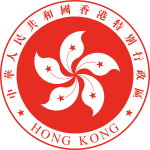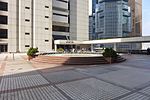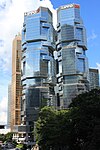Flagstaff House
1984 establishments in Hong KongArt museums and galleries in Hong KongCentral, Hong KongDeclared monuments of Hong KongDecorative arts museums in China ... and 8 more
EngvarB from April 2018Greek Revival housesHong Kong ParkLandmarks in Hong KongMuseums established in 1984Official residences in Hong KongTea museumsTeaware

Flagstaff House, built in 1846, is the oldest example of Western-style architecture remaining in Hong Kong. It is located at 10 Cotton Tree Drive, Central – within the Hong Kong Park. It has been a longtime residence of the Commander of the British forces in Hong Kong during colonial times. Today Flagstaff House houses the Museum of Tea Ware.
Excerpt from the Wikipedia article Flagstaff House (License: CC BY-SA 3.0, Authors, Images).Flagstaff House
Cotton Tree Drive, Hong Kong Island Central (Central and Western District)
Geographical coordinates (GPS) Address Phone number Website External links Nearby Places Show on map
Geographical coordinates (GPS)
| Latitude | Longitude |
|---|---|
| N 22.2785 ° | E 114.1625 ° |
Address
茶具文物館 Flagstaff House Museum of Tea Ware
Cotton Tree Drive 10
Hong Kong Island, Central (Central and Western District)
Hong Kong, China
Open on Google Maps










